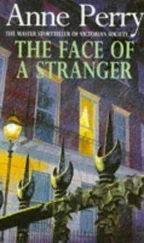Anne Perry - Blood on the Water
Здесь есть возможность читать онлайн «Anne Perry - Blood on the Water» весь текст электронной книги совершенно бесплатно (целиком полную версию без сокращений). В некоторых случаях можно слушать аудио, скачать через торрент в формате fb2 и присутствует краткое содержание. Год выпуска: 2014, ISBN: 2014, Издательство: Random House Publishing Group, Жанр: Исторический детектив, на английском языке. Описание произведения, (предисловие) а так же отзывы посетителей доступны на портале библиотеки ЛибКат.
- Название:Blood on the Water
- Автор:
- Издательство:Random House Publishing Group
- Жанр:
- Год:2014
- ISBN:978-0-345-54844-3
- Рейтинг книги:3 / 5. Голосов: 1
-
Избранное:Добавить в избранное
- Отзывы:
-
Ваша оценка:
- 60
- 1
- 2
- 3
- 4
- 5
Blood on the Water: краткое содержание, описание и аннотация
Предлагаем к чтению аннотацию, описание, краткое содержание или предисловие (зависит от того, что написал сам автор книги «Blood on the Water»). Если вы не нашли необходимую информацию о книге — напишите в комментариях, мы постараемся отыскать её.
Blood on the Water — читать онлайн бесплатно полную книгу (весь текст) целиком
Ниже представлен текст книги, разбитый по страницам. Система сохранения места последней прочитанной страницы, позволяет с удобством читать онлайн бесплатно книгу «Blood on the Water», без необходимости каждый раз заново искать на чём Вы остановились. Поставьте закладку, и сможете в любой момент перейти на страницу, на которой закончили чтение.
Интервал:
Закладка:
And swim to where? They would’ve been out in the middle in the current of the incoming tide. And the Thames tide was swift and strong.
There would have been other boats around: ferries, barges, large ships coming in to anchor in the Pool of London. They could see each other because they carried lights-they had to. Law of the sea. But a swimmer didn’t! A swimmer could be struck, swamped in the wash, or, worst of all, caught in the paddles or the screws and hacked to pieces. Scuff shuddered at the thought of it and felt his legs go weak.
He put it out of his mind and hurried the last few steps home. He wanted lights, warmth, people, even if they scolded him for being late. It was very nice to be wanted.
“You’re late,” Hester said as soon as he was in the door. “Are you all right?”
Perhaps he should have been penitent-it would have been wiser-but he could not keep the huge smile from his face.
“Yes … I’m home.” He saw the irritation in her eyes and was not absolutely certain what it was. “And I’m hungry,” he added.
Monk came in a few moments later, and spoke only of the usual sort of business on the river. He did not even mention the Princess Mary , so Scuff thought he had better not mention it either. Hester did not refer to the fact that he had been late, and he was too grateful for that to risk anything but enjoying the good food and comfortable silence. He did not allow into his mind those who would be sleeping outside on the dock, as he once had.
CHAPTER 3
Monk tried to work as usual and put the atrocity of the pleasure boat loss at least to the back of his mind. Sometimes he succeeded for as much as half a day, but there was always something to remind him of it eventually. People were still talking about it. There was speculation in the newspapers and in fliers posted up on every wall and street corner, or passed from hand to hand. Even into June, wreckage was being washed up with each high tide: pieces of wood, broken furniture, waterlogged cushions, and the torn fabric of clothes. On the curved shore of the Isle of Dogs, three more bodies surfaced. A pall of grief hung over everything, in spite of the sunshine, and it was slowly hardening into anger.
Monk saw the Metropolitan Police on the banks, at the docks, even at times on the river itself, talking to lightermen and bargees. He did not envy them. At first they were resented, interlopers in an alien territory. Now they were being blamed because they seemed to have no idea who they were chasing, or even why the tragedy had happened.
Who would do such a thing? Possibilities teemed in Monk’s mind. He could not think any ordinary river pirates or thieves could do anything so extreme. It would draw unwanted attention. But since the revolution that had swept Europe in 1848, some twenty years ago, London was full of refugees: people either fleeing the persecution that had followed the suppression of revolt, or simply looking for a different and better life. Occasionally old quarrels erupted into violence between groups; social change, overcrowding, strange languages and customs-all of it frightened people.
And yet standing on the quayside watching the river traffic passing, hearing the familiar shouts and clangs of men working their trades, Monk could not believe that any of the immigrants would commit such an atrocity. Apart from any morality involved, it would be pointless. All they wanted was a little space, and the chance to earn a living.
The speed with which Monk had been dismissed and Lydiate appointed smelled political, but to what end? Ships came and went from the Pool of London to every country on earth. Cargo included things as small as diamonds or as huge as timber.
Could the tragedy have to do with smuggling? The Princess Mary had been to Gravesend. Could it have met a coastal freighter there? The possibilities filled his mind. Smuggled goods deliberately sunk, to be plundered afterward? By whom? Pirates? Salvagers? Corrupt laborers, or even police?
Would Lydiate even think of that? Should Monk suggest it?
Or did Lydiate already know what or who was behind the explosion, but was keeping it quiet because it was political?
Whatever the reason, it had to be overwhelming for anyone to have committed such a horrific crime.
Years ago Monk had been in the regular Metropolitan Police himself. Whether he had resigned or been dismissed was an arguable point. Early in his career he had worked alongside a man named Runcorn, and they had trusted each other. Then Monk’s darker nature had brought out the worst in Runcorn. Friendship had turned first to rivalry, later into something close to hatred.
The final straw came when Runcorn had been promoted, becoming Monk’s superior. Runcorn was by nature obedient, loyal, unimaginative, and often pompous. All these things considered, it was surprising how long it had taken him to dismiss Monk. It had occurred at precisely the same moment when Monk had completely lost his temper and resigned.
For some time Monk had worked as a private agent of inquiry, but the living was dangerous and irregular. When he had been offered the position of commanding the Thames River Police, little as he liked either the responsibility or the discipline, he had accepted it. Commanding men had taught him much, humbled some of his arrogance and given him an unexpected sense of loyalty to his work and the people he worked with. He had even found, to his amazement, a kind of friendship with Runcorn, who had mellowed much since his unexpected marriage to a woman he had imagined hopelessly beyond his reach.
Now, at the end of the day on the river, Monk found he had finished his work a little earlier than expected. On impulse, he took a hansom to Runcorn’s police station in Blackheath and asked to see him.
He had to wait about a quarter of an hour until Runcorn returned from some errand, but he did so with patience. He recognized Runcorn’s rather heavy step ascending the stairs and found himself anticipating the meeting with pleasure, something he could not have imagined a few years ago.
Runcorn came into the room smiling and with his hand held out. He was a big man, tall and solid with a long face and thick gray curling hair.
Monk stood and gripped Runcorn’s hand. The pressure expressed eloquently the strange mixture of memory and understanding that bound them.
Without asking Monk’s preference, Runcorn called over his shoulder for two mugs of tea. Then he waved at the chair for Monk to resume his seat. He took off his jacket and sat down himself, crossing his legs comfortably, waiting for Monk to state his reason for having come.
“I expected to have to wait longer,” Monk remarked. “Or have you got something else on at the moment?” He knew he would not have to tell Runcorn what case he was interested in.
Runcorn sighed. “Something else,” he agreed. “Damn stupid knife fight in an alley. Lucky he isn’t up for murder. Seems idiotic, doesn’t it? Words! Man with the vocabulary of a pig insults you, and you risk spending the rest of your life in prison breaking rocks just to get back at him. And we’ve got a hundred corpses being hauled out of the river-and for what?”
“No idea yet, then?” Monk asked.
Runcorn sighed and answered the door as a constable arrived with the tea. He took it from him, thanked him, and then shut the door again. He passed one of the mugs over to Monk. “Take your pick. Theft, but there’s nothing to steal that wouldn’t have been taken a lot more effectively by half a dozen pickpockets, and sold on without anyone the wiser. Some sort of fraud?” He pursed his lips. “Can’t see how. Extortion? ‘Pay, or I’ll sink your boat?’ You’d have caught wind of anyone doing that sort of thing, on that level. Revenge seems to be the most likely scenario.” Runcorn’s face was sad, the anger in him unmistakable. “God knows for what.”
Читать дальшеИнтервал:
Закладка:
Похожие книги на «Blood on the Water»
Представляем Вашему вниманию похожие книги на «Blood on the Water» списком для выбора. Мы отобрали схожую по названию и смыслу литературу в надежде предоставить читателям больше вариантов отыскать новые, интересные, ещё непрочитанные произведения.
Обсуждение, отзывы о книге «Blood on the Water» и просто собственные мнения читателей. Оставьте ваши комментарии, напишите, что Вы думаете о произведении, его смысле или главных героях. Укажите что конкретно понравилось, а что нет, и почему Вы так считаете.












